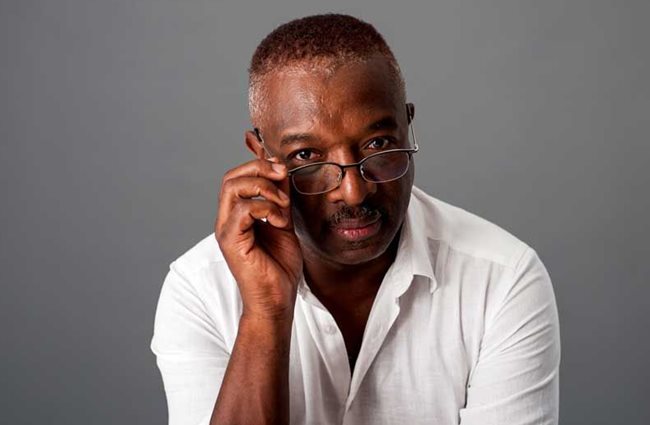
Subscribe & Follow
Advertise your job vacancies
Jobs
- Graphic Designer/E-Commerce retail design Johannesburg
- Debtors Controller Johannesburg
- Senior Public Relations Account Manager Cape Town
- Head of Legal Johannesburg
- Digital Media Sales Strategist - Media Sales House Johannesburg
- Digital Sales Account Manager - Media Sales House Johannesburg
- Experienced Model Booker (Agent) Cape Town
- Production Resources Manager Randburg
- Creative Video Editor Randburg
- Creative Content Producer Randburg
EXCLUSIVE: Solly Moeng talks media independence and credibility
With a passion for Africa, Solly Moeng, convenor of The Africa Brand Summit, sits on the global executive committee of the World Communication Forum Association (WCFA). The World Communications Forum Association, registered in Davos, will be hosting the annual event Davos Online Communications Summit, which took place on Zoom on Thursday, 25 February 2021.

Solly Moeng chats to us ahead of the Davos Online Communications Summit.
The global event, under the theme "Leadership During Turbulent Times", will bring together several speakers from different parts of the world who will participate in virtual panel discussions on contemporary topics on leadership and ethics in modern and post-pandemic communications, education, the merge between PR, advertising and digital, and the future of the industry and more.
Keynote speakers include Barbara Bates (global CEO of Hotwire), Karen van Bergen (global Dean of Omnicom University) and Jordan Rittenberry (CEO of Edelman Africa). Panellists include Yanina Dubeykovskaya, Saurabh Uboweja, Solly Moeng, Lesley Schroeder Mclean, Hesham Mesbah, Nurul Ashiqin Shamsuri, Tatevik Simonyan, Christina Forsgard, Zsofia Lakatos, Sjaak Koole, Michael Schroeder, Justin Green, Peter Mutie, Mai Anh Le.
Under the theme, Leadership During Turbulent Times, Solly Moeng chats to us ahead of the Davos Online Communications Summit.
How has the media landscape evolved in recent years?
More than anything else, digital has become undoubtedly King and content the supreme Queen.
Sadly, while increasing numbers of people realise the need to have some form of digital presence and have been jumping onto the bandwagon, only a small number do so with a plan.Smart use of content still leads to better, lasting, memorable engagements. Having the content is one thing, but being smart about how to employ it on the right digital platforms, in appropriate tone and at appropriate intervals does matter.
The media, as a sector, is also facing an increasing number of legitimacy issues as the phenomenon of fake news grows and some trusted media journalists get caught with their pants down for having tried to either cut corners or publish fabricated, self-serving stuff. With traditional media on the reputational backfoot, credibility must be restored through a concerted return to basics: check all sides of any story, confirm the credibility of all sources, check their motives, etc.
In your opinion, what role can the media play in the future of communications?
There is still a role for media to play, but it must keep the credibility bar high because it has increasingly come under scrutiny. Each time it fails, it provides another set of excuses for rogue people and groups to justify their own actions. Media independence and credibility are key.
The pandemic has put trust to the test. How can leaders gain trust in modern communications?
Trust must be earned. Discerning readers do not easily get fooled, irrespective of whether they’re leaders or ordinary consumers of media.
Leaders are the ones who often have messages to communicate. They should have nothing to fear if they do so honestly, transparently, and with good intentions.Spin always gets unmasked for what it is because consumers of news increasingly access information from a variety of sources and are thus better positioned to tell when a piece of information seems suspect. Establishing and maintaining cordial, mutually respectful, relationships with independent media can also work in the favour of credible leaders.
The media is often still seen as distrusted, unethical and incompetent. What's your take on that?
The mistake that many continue to make is to regard and treat “the media” as one homogenous blot; but we know it is not.
The reality is that the media space is as diverse as any community can be.While the basic rules should apply to all, there will always be a few who abuse them, often driven by either greed (brown envelopes), laziness (tight deadlines to submit stories), or a basket of agendas (absence of neutrality). Those who fall into the latter categories should be called out and isolated for what they are without throwing all the media out the window with them.
To protect the integrity of the media, those who abuse their positions in any way should be stripped of their credentials and ostracised forever, as failure to do so, reintegrating them into the media fraternity, only helps to strengthen the suspicion that all media is bad.
We know that the future of news journalism is going to change. What sort of formats of news can we expect to start seeing?
We should expect a proliferation of independent, even one-man/woman media outlets on platforms such as YouTube and others that do not require huge, upfront, financial outlays but that will grow mostly because of the quality and credibility of their content, presenters, as well as the entertainment savoir faire, style, of the latter. The space will no doubt continue to be competitive as more voices and faces take their positions. Competition for sponsor and advertising funds will also get fierce.
For those building on or creating news platforms, what should they be looking to build?
Great content, unique angles and perspectives, as well as unafraid presentation.
Credibility quotients will also rely on the extent to which the presentation is seen to be independent of political and other agenda-driven narratives.The quality of platforms chosen, as well as reliable, sturdy, internet connection, are also key requirements.
When we take a look at South Africa, where are we still missing the point and what can be done?
South Africa is a very diverse and complex country. Even the veracity of its written history as recorded is increasingly coming under fire, as many believe - going by the often repeated dictum that “history is written by the Victors, for the Victors” – that everything we’ve been told has been one biased narrative after another, all aimed at achieving certain preconceived ends. This has led to a free space in which increasing numbers of more contemporary narratives have been, and continue to be, created to suit various political agendas.
In such a cacophonous space, media must take extreme care not to be used to feed into any narrative without verifiable facts. Anything that gets published risks being seen by one of the many groups as serving the agenda of one of the others, ranging from “White Monopoly Capital”, ‘Radical Economic Transformation”, “Thuma Mina”, “The West”, “China”, “Russia”, etc.It has all become very murky. Careless, overzealous, media practitioners will soon find themselves floating or sinking into maelstroms serving agendas they never intended to be part of.
My solid advice would be to think, verify information, compare, verify again, check the going narratives and their intent, verify sources, obtain third party perspectives, be clear about what you want to communicate and how it might be interpreted and be prepared to defend it.
The Davos Online Communications Summit will take place on Zoom (Meeting ID: 625-266-8357) at 3PM(CET) or on https://www.facebook.com/events/2436358426510943/.













